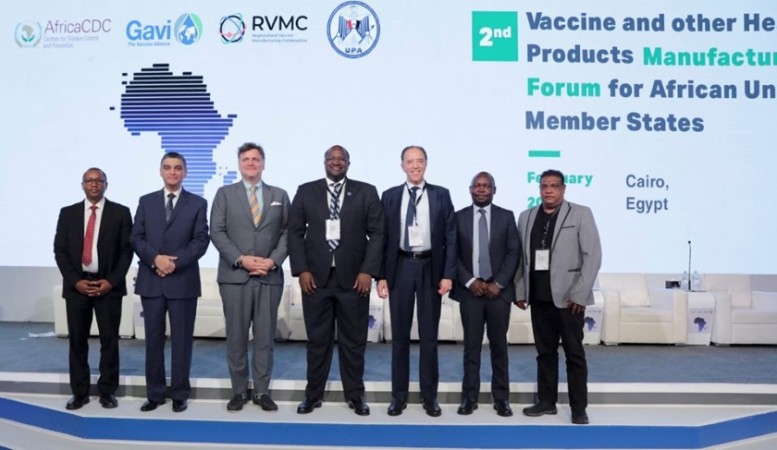
Africa's journey toward vaccine self-sufficiency is gathering pace, with three manufacturers poised to secure World Health Organization (WHO) prequalification for eight vaccines between 2025 and 2030. This significant milestone is set to reduce the continent's reliance on imports and strengthen its healthcare security, according to the Africa Centres for Disease Control and Prevention (Africa CDC).
A recent survey by the Africa CDC highlights the growing capacity of Africa's pharmaceutical sector, revealing a network of 574 manufacturers, including 25 involved in vaccine production. Of these, 10 have already installed capacity, signalling Africa’s readiness to shift from dependency on external suppliers to localized vaccine production. The next five years will be critical as African manufacturers work to secure regulatory approvals and meet international standards.
Although the names of the three manufacturers in line for WHO prequalification have not been disclosed, their progress reflects Africa's expanding footprint in global health security. Attaining WHO certification would not only allow African producers to supply vaccines domestically but also to access international markets through agencies such as Gavi and UNICEF.
Despite this progress, Africa faces a critical challenge — a shortage of skilled professionals in biomanufacturing, research and development (R&D), and regulatory affairs. To bridge this gap, Africa CDC has launched Regional Capability and Capacity Networks (RCCNs), designed to build expertise and foster collaboration among research institutions, manufacturers, and regulators.
Key institutions have been appointed to lead regional efforts: Institut Pasteur du Maroc and The Unified Procurement Authority in North Africa, Africa Biomanufacturing Institute in Rwanda for East Africa, Institut Pasteur de Dakar in West Africa, and the Council for Scientific and Industrial Research in South Africa for Southern Africa. These centers will play a pivotal role in training the next generation of biomanufacturing experts.
Africa CDC estimates that the continent's vaccine manufacturing workforce must expand from 3,000 to 12,000 full-time employees to meet its ambitious targets. Chiluba Mwila, Talent Development Lead for Africa CDC’s Platform for Harmonised African Health Manufacturing (PHAHM), stressed the urgency of scaling up talent development. “Africa faces three main challenges: insufficient relevant educational programs, brain drain, and fragmented funding. Our strategy addresses these issues by ensuring a steady pipeline of world-class professionals to sustain the vaccine ecosystem,” Mwila stated.
The continent has set a bold target of producing 60% of its vaccines locally by 2040, a plan strongly backed by African Union leaders. To support this vision, the Partnerships for African Vaccine Manufacturing (PAVM) initiative has been expanded to cover medicines, diagnostics, and other health products. A cornerstone of this strategy is the Pooled Procurement Mechanism (PPM), aimed at creating a stable market for Africa-made medical products.
Global donors and development finance institutions have pledged over $3.5 billion to boost Africa's health product manufacturing sector. Afreximbank alone has committed $2 billion to strengthen the industry, helping African manufacturers scale up production and enhance infrastructure.
Jean Kaseya, Director General of Africa CDC, hailed the RCCNs as a “game-changer” for Africa's vaccine ambitions. “One of the biggest challenges to Africa’s vaccine production is the shortage of skilled professionals in biomanufacturing, R&D, and regulatory affairs. The RCCNs will bridge this gap and ensure Africa can sustain its own vaccine ecosystem,” he remarked during the 2nd Vaccines and Other Health Products Manufacturing Forum in Cairo.
As the RCCNs take root, Africa CDC’s next steps include bolstering institutional capacity, increasing investment in research, and expanding training programs to cultivate a competitive and innovative workforce. With these efforts, Africa is steadily positioning itself as a global player in vaccine manufacturing, laying the foundation for a more resilient and self-reliant healthcare system.
Article by Nyokabi Wanjiku
Photo/Google

Comment